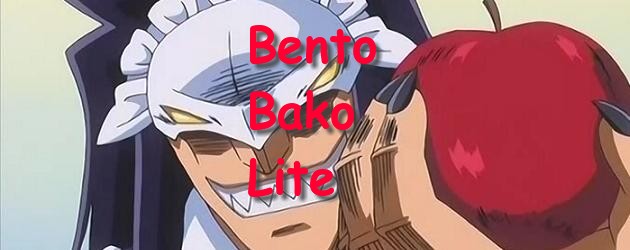 Title: Library Wars: Love and War
Title: Library Wars: Love and War
Author: Kiiro Yumi (original concept by Hiro Arikawa)
Publisher: Viz Media (Shojo Beat)
Volume: Volume 5 (ongoing), $9.99
Vintage: 2010 by Hakusensha in Japan, June 2011 by Viz Media
Genre: Romance, comedy, drama
In volume 4, Iku’s parents came to visit her to observe her at work. The team pulled together to hide Iku’s real job as a Library Forces Task Force member by turning Iku into a regular librarian. Uncomfortable in such a different position, Iku stumbles along awkwardly and her teammates have to step in and back her up, particularly Instructor Dojo. Though Iku feels guilty about hiding the truth from her parents, she loves her job and doesn’t want to worry her parents. Her teammates realize this, and do everything they can to help. Unfortunately, Iku’s father, who is rather perceptive, begins trying to uncover things on his own. He asks Iku to find him a periodical in the library, and when she fails, Dojo steps in to save the day again, and give Iku a short pep talk. At dinner that night, Iku’s mother tries to confront her again, but just as the argument gets out of hand, Iku’s father uncharacteristically stands up for his daughter and her choices. When her parents finally leave, they leave content, Iku’s mother somewhat resigned to the situation, and her father realizing that his daughter is surrounded by good people watching out for her. The story then shifts focus with a more serious story about Komaki and a young girl named Marie Nakazawa. Komaki and Marie have known each other for years, having lived next door to each other growing up (though Marie is ten years younger). Marie has long held affection for Komaki, but because of her age was forced to watch from the sidelines as Komaki dated girls his age, and each time it broke her heart. In junior high, Marie suffered a serious case of sudden hearing loss, going completely deaf in one ear, and nearly deaf in the other. Her life fell apart, and it was Komaki who helped her put the pieces back together. Komaki frequently finds books he thinks Marie will enjoy reading, and on this particular library visit, he gives Marie a book called The Country of the Raintree. Because the book is about a deaf girl, when her classmates see Marie reading the book at school, they decide that it was cruel for someone to give to her, and report Komaki to the Media Betterment Committee. The MBC shows up to the library and demands to take Komaki into custody. Emotions rise as the gang helplessly watches their friend and teammate dragged off, but after waiting three days without a result from their investigation, Iku takes things into her own hands and approaches the one person who may be able to help free Komaki. To help you recover from the tension of those chapters are two amusing little bonus stories. The first has Iku on a quest to take a picture of the typically grumpy Tezuka smiling for a girl who has a crush on him. The second puts the Task Force team at a lavish party for local authors and publishers. The attendees are at a high risk for attacks by supporters of the MBC, so Dojo’s team has been assigned to protect them. After taking down a suspect in a water fountain, Iku is whisked away by the party’s fashion staff for a makeover, resulting in an uncomfortable Iku and a flustered Dojo for the rest of the evening.
This was a very good volume. A good chunk dealt with serious issues of government enforce0d hysteria and censorship, which is what I really want to see more of in this series. It’s great and very cute as a romantic comedy, but its setting lends much potential for the series to get down and dirty with issues of government censorship, which has always been interesting to me. That part of the story, dealing with Marie and the way her disability is viewed by those around her, was handled quite well, and it still maintained the elements of romance readers want from their shoujo manga. There’s also a reflection of Komaki and Marie’s relationship in Iku and Dojo’s. Komaki’s desire is to be a hero and pillar of strength for Marie. Dojo was once Iku’s hero (and his past self still is, as her “prince”), and struggles with his new perspectives while still wanting to shine for Iku. Sometimes he succeeds, and he is certainly upset when he does end up disappointing her. The bonus stories were quite cute, especially the second one at the publishers party. Iku, who is not used to dressing up, is visibly uncomfortable in the elaborate dress and hair style the makeover team puts her in. As such, she is also unused to having men hitting on her, so she’s utterly confused by the sudden attention she gains. It’s quite amusing seeing Dojo’s reaction at the site of her (he doesn’t even recognize her at first), and his subsequent jealous reactions to any man who gets near her. I don’t particularly like the implication that she’s only a beauty when she’s dolled up, but it’s true that her cropped hairstyle and frequently masculine attire don’t exactly create a feminine image. It’s certainly not the first manga with that sort of heroine (Skip Beat! comes immediately to mind), and it doesn’t lesson her as a character.
Kris
kristin@comicattack.net
@girlg33k_Kris
Review copy provided by Viz Media.



Pingback: Tokyopop’s teen appeal « MangaBlog